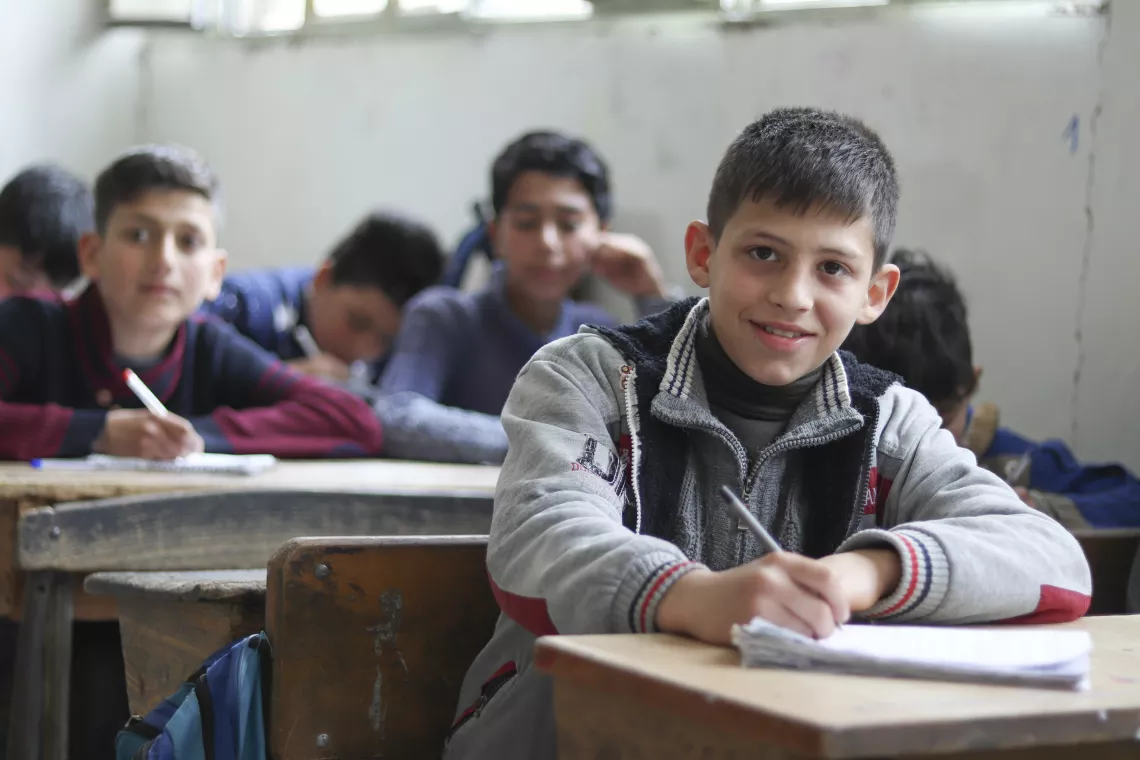A Quest for Learning; Mohammad’s story
Years of violence, displacement and loss of livelihoods have pushed thousands of children into work across Syria, to help provide for their families, interrupting their education and adding to their vulnerability.

Children are often forced into hazardous labour, including operating heavy machinery in factories and workshops, blacksmithing, carpentry, scavenging through garbage for waste that can be sold and working on the streets.
Like thousands of children across Syria, Mohammad’s life changed with his father’s passing back in 2012, leaving Mohammad, his sister and their mother with no income in Assukari neighborhood of eastern Aleppo.
Mohammad, only six at the time, would go to school in the morning then spend his evenings helping his mother sell vegetables they bought from a nearby village, for minor profit.
Last year, as their mother got older and increasingly unable to work long hours, Mohammad and his sister both dropped out of school to become their family’s main breadwinners. While Mohammad worked in a blacksmithing workshop, his sister Fadilah found a job cleaning houses.
“I used to tear up watching other children pass the workshop on their way to school while I had to work,”
Determined to achieve a better future for himself, Mohammad tried to convince his employer to adjust his working hours so that he could return to school, to no avail.
“I went searching for other jobs until I found a tile setter who let me work in the afternoon, so I could make it to school in the morning,” explains Mohammad.
“Even though this job hurts my back and shoulders, it at least gives me the chance to continue learning,” he continues while carefully unloading a heavy batch of marble tiles off his small shoulders, covered in dust from head to toe.

Every day after school, Mohammad works for at least 7 hours installing tiles in homes across the city of Aleppo. He earns 4,000 Syrian Pounds per week (USD 7), which go towards providing food for his family.
To catch up on the year of education he missed, Mohammad joined the UNICEF-supported Curriculum b programme, especially designed for children who have missed out on years of education due to conflict, displacement and work to catch up with their peers in half the required time.
“Mohammed is passionate about his education; he’s eager to learn everything he missed despite sometimes being tired and sleepy during the school day,”
Despite only having time to study at night, Mohammad has been excelling in school.
“It also made me feel at ease that most of my friends at school work to help their families,” he says.
Mohammad’s family also benefited from case management services supported by UNICEF, allowing Fadilah to take part in vocational training and securing a job for Mohammad’s mother. The programme refers vulnerable families to different organizations and NGOs to receive services based on their needs.




